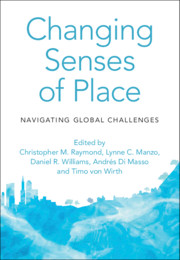İstanbul has undergone a neoliberal restructuring over the past two decades. In this paper, we focus on two urban spaces that we argue to have emerged as part of this process—namely Göktürk, a gated town, and Bezirganbahçe, a public housing project. We examine these spaces as showcases of new forms of urban wealth and poverty in İstanbul, demonstrating the workings of the neoliberalization process and the forms of urbanity that emerge within this context. These are the two margins of the city whose relationship with the center is becoming increasingly tenuous in qualitatively different yet parallel forms. In Göktürk's segregated compounds, where urban governance is increasingly privatized, non-relationality with the city, seclusion into the domestic sphere and the family, urban fear and the need for security, and social and spatial isolation become the markers of a new urbanity. In Bezirganbahçe, involuntary isolation and insulation, and non-relationality with the city imposed through the reproduction of poverty create a new form of urban marginality marked by social exclusion and ethnic tensions. The new forms of wealth and poverty displayed in these two urban spaces, accompanied by the social and spatial segregation of these social groups, compel us to think about future forms of urbanity and politics in İstanbul.


